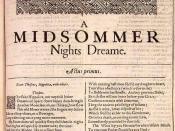The theme of carpe diem is represented in the film, "Dead Poet's Society", through the theme of individualism and freedom. Professor Keating, the replacement English society, introduces the idea of individualism and free thinking to the seven boys, "I thought the purpose of education was to learn to think for yourself." helping them realize that although authority can, and must always act as a guide, one can only find his true identity within himself. This raises the question of "To what extent should a society act as a guide for helping one live life to the fullest?" Keating tells them to "seize the day"; to go outside of society's expectations and live as an individual.
The boys re-establish the Dead Poet's Society as a "rebellion" against what is expected from them by society (the school and their parents), learning to think for themselves, which makes them dynamic characters.
Perhaps the most dynamic of the boys, the one who learns the most from Keating, would be Neil Perry. At the beginning of the film, Neil is obedient to his father and thinks that he should let his father choose his life. However, after learning from Professor Keating, Neil realizes that in order to "seize the day", he should follow his own dreams and "suck the marrow out of life". Neil's participation in the play, "A Midsummer Night's Dream", is ironic because it is symbolic of his freedom and allows him to live life to the fullest, but leads him to his own death. "And not, when I come to die, discover that I had not lived".
Neil's father, as well as the rest of the boys' parents, is in contrast, static or flat characters, as he keeps his thoughts and ideas until the end of the film. Mr.


